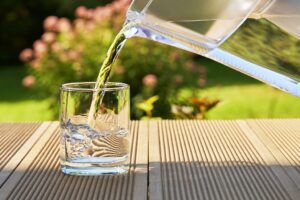
Nobody is outside the scope of risk associated with high temperatures and humidity. It is true that people over 65, as well as those with conditions that impact the body’s ability to cool itself, are at the highest risk.
Such conditions include heart failure, kidney failure, poor circulation, and high blood pressure.
Excessive exposure to heat can result in heat exhaustion and, more severely, heat stroke. Heat stroke is a medical emergency that requires immediate attention.
Heat exhaustion can occur when your body is working to its limit to keep you cool. Symptoms can include excessive sweating, cold, pale, clammy skin, muscle cramps, nausea, vomiting, feeling faint/dizziness, and headache.
This can often be treated at home with a cold shower/sitting in a tub, hydrating, or other methods of cooling.
Heat stroke occurs when your body can no longer cool itself down. Temperatures will shoot up very high, and skin becomes red and hot. You will no longer be able to sweat and must seek medical attention.
The best way to beat the heat is to stay out of it. If you have air conditioning, stay indoors and stay hydrated. If you don’t have air conditioning, go to places that do. Call on family, go to the movies, library, shopping mall, or other air-conditioned facilities.
When you are at home, be sure to drink plenty of cold fluids and use a cool wash cloth and regular cool showers to keep your temperature in check. Try to point a fan by the window to blow warm air out.
If you have to be outdoors, seek shade and drink plenty of fluids while avoiding strenuous activity. Dress in light, loose-fitting clothing and move slowly.
This type of heat can be very dangerous and life-threatening. Learning how to monitor your feelings, temperature, and others around you can reduce your risk for heat-related illness.